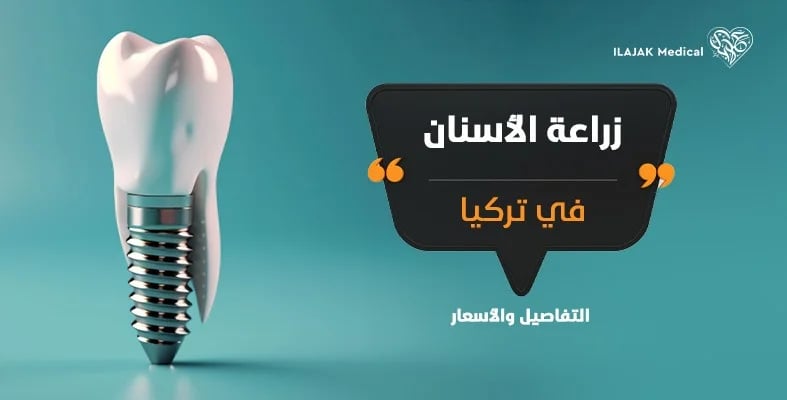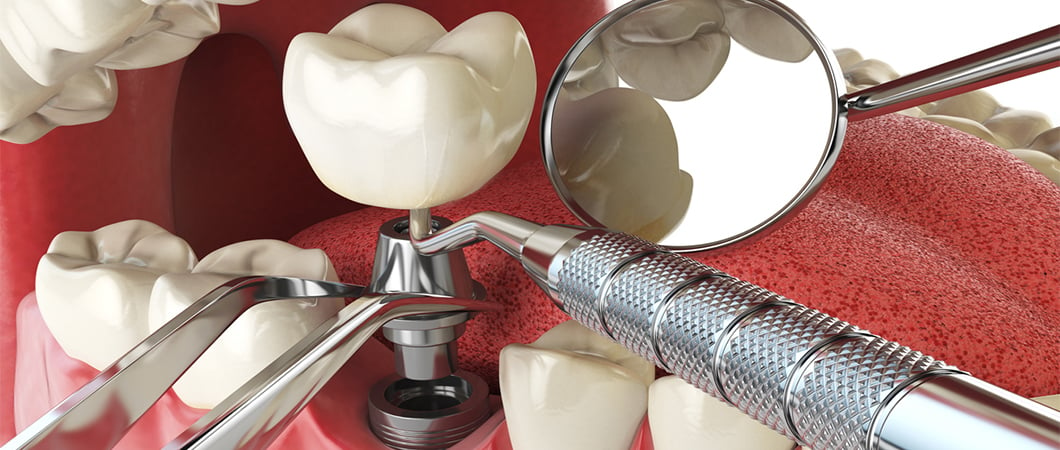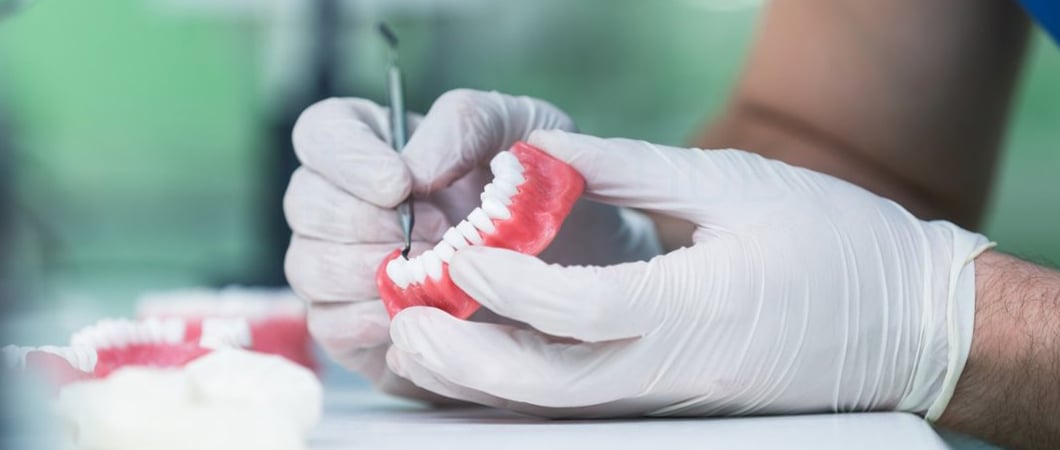Dental Implants in Turkey

Dental implants in Turkey is one of the most reliable and long-lasting treatments for teeth loss. Dental implant procedure is the implantation of an artificial metal root within the jawbones as a replacement for damaged tooth root, and this implanted root provides a strong foundation for teeth crowns.
Dental implants help restore the aesthetic appearance of the teeth, in addition to the function and the structure of the missing tooth and jaws, as teeth implants function, feel, and look exactly like your normal teeth.
What are dental implants?
Dental implants in Turkey are done through a simple surgery, in which a strong post of titanium is placed deep into the jawbone, and this titanium post will later serve as the strong foundation for the replacement porcelain tooth.
Titanium is one of the strongest and lightest materials, it is fully compatible with the jawbones as it fuses completely with your jawbone so it doesn’t slip or move or cause any damage to its surroundings, unlike fixed bridgeworks or normal dental prosthetics.
Moreover, dental implants don’t get cavities like your normal teeth would, because neither titanium nor porcelain crown can be affected by cavities.
Are there any risks associated with dental implants?
Like any operation, there are some risks and complications associated with dental implants, those risks are rare problems in general, and if they occur, they are simple and treatable, and they include:
- Infection in the affected area.
- Injury or damage to the adjacent teeth
- Nerve damage, which can present as pain or numbness of the lip, gums, or chin.
- Sinus problems in the case of upper teeth implants.
What are the stages of dental implant?
The dental implant is considered an outpatient procedure, as it does not require admission to the hospital.
Dental implants procedure is carried out in stages, and requires time for bone healing between the different stages, as the implantation procedure includes several steps, including:
- Removing the damaged tooth parts.
- Preparing jawbones and sometimes bone grafting as needed.
- Implanting the titanium root into the jaw.
- Waiting for bone growth around the implanted area and healing.
- Placing the abutment on the titanium root.
- Installing the artificial crown.
Dental implant may generally take more than a month, and most of this time passes while waiting for bone healing and growth, and it depends on the materials used, and sometimes several steps are combined in one session.
Dental Implant Procedure
1. Stage 1 – Placing the titanium root
During dental implant procedure, the dentist will drill into the jawbones and place the metal root deep inside the jawbones, and this part will serve as the solid root for the artificial tooth crown, which may be later placed in another session, and a temporary tooth will be placed on the titanium root to fill the gap until the next session.
2. Stage 2 - Waiting for bone growth.
Once the titanium root is implanted into the jaw, the process of bone tissue formation around it begins, and during this process the jawbone unites with the implanted root, and this stage takes some time to form a solid base for the artificial crown until it becomes as strong as natural teeth roots.
3. Stage 3 – Placing the abutment
After the process of bone tissue healing around the titanium root, there will be another session to place the abutment which is the part that the crown will attach to. Abutment placement is a simple process that the dentist performs in the clinic under a local anesthetic, and after abutment is placed the gum will grow around it but not over it.
In some cases, the abutment is attached to the titanium root when the root is implanted, and in this way two sessions are accomplished in one session, but in this way the abutment will be obvious whenever you laugh or open your mouth, and some people do not like it and prefer to install the abutment in another session.
After installing the abutment, the gums need about two weeks to heal around the tooth it, before the final crown of the tooth is placed.
After the gums heal, the final crown will be placed, which cannot be differentiated from the normal tooth in appearance and function.
What materials are crowns made from?
Dental crowns are made of porcelain, known to be tough enough to withstand the enormous pressure that teeth are subjected to when chewing food, and sometimes metal materials are used in its composition, and that increases its resistance and strength dramatically.
Are there complications expected after the operation?
Whether the dental implant was done in one session or in several sessions, some temporary complications may appear immediately after the operation, such as
- Simple swelling of the gums and lower face.
- Gum bruising.
- Pain in the site of the implanted part.
- Minor bleeding at the site of the implant.
In case you encounter some dental implant problems, we recommend the following:
You may need to use analgesics or antibiotics after the procedure, and in case of severe swelling or discomfort at the site of the implanted tooth, or any other problems, you should consult your doctor directly.
After each session of the procedures, it is better to eat soft foods as directed by your doctor, until the implant is healed.
The vast majority of dental implants are successful, and the bone rarely fails to fuse adequately around the implanted titanium root, and your specialized dentist will follow you up to assess the possibility of such problems, taking into account your health history and the medications that you regularly use, or have used before the procedure if there were any.
In the event of inadequate healing of bone tissue in the jaw, perhaps your dentist will have to remove the titanium root, and implantation can be tried after a period of 3 months.
Do you have an inquiry? Contact us - For FREE Consultation.
Ilajak Medical© | A passion for care!



Treatment Services
In the Best Medical Centers
Contact Us
Please fill the form below and describe your condition, We will contact you back
- Dental Treatment
- Hair Transplant
- Obesity Surgery
- Vision Correction
- Health Resorts
- Other Medical Services
- No elements found. Consider changing the search query.
- List is empty.
Your personal data is processed as indicated in the general statement text and by continuing, you explicitly consent to the processing

